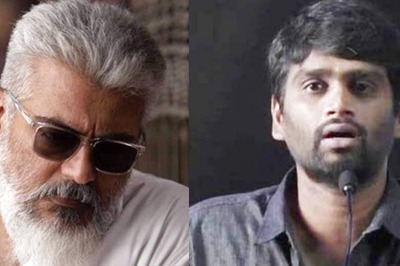
views
Salman Rushdie remains one of the greatest storytellers of our times. A master of magical realism, the author’s ability to weave fantasy moored to the uncomfortable realities of the world has captured readers’ imaginations for decades, but also made the author a controversial target.
A Fellow of the British Royal Society of Literature, Rushdie has received, among other honours, the Whitbread Prize for Best Novel (twice), the Writers’ Guild Award, the James Tait Black Prize, the European Union’s Aristeion Prize for Literature, Author of the Year Prizes in both Britain and Germany, the French Prix du Meilleur Livre Etranger, the Budapest Grand Prize for Literature, the Premio Grinzane Cavour in Italy, the Crossword Book Award in India, and many more.
Here’s a look at some of his best works, ranked in no particular order:
Grimus: A Novel (1975)
Rushdie’s debut novel is part science-fiction, part folktale and part fantasy, already setting the tone for the rest of his work. It follows a young Native American named Flapping Eagle who receives the gift of immortality and is “a book to be read twice,” as a review in the Los Angeles Times put it.
Midnight’s Children (1981)
The book is one of the Mumbai-born author’s most widely read. An fantastical coming-of-age of modern India, it focuses on the country’s transition from British colonial rule to independence and partition. It won the Booker Prize and the James Tait Black Memorial Prize in 1981, and was adapted into a 2012 film. In 2008, the book was awarded “The Best of the Booker”.
ALSO READ: Who is Hadi Matar? Salman Rushdie’s Attacker Had Sympathies for Shia Extremism, Reports Reveal
The Satanic Verses (1988)
While Midnight’s Children brought him International acclaim, Rushdie’s fourth novel is what brought him “a painful level of visibility” as the New York Times stated. The controversial book, partly based on Prophet Muhammad, earned the ire of several from the Muslim community and in 1989, Ayatollah Ruhollah Khomeini, the supreme leader of Iran, issued a fatwa calling for Rushdie’s assassination, making him a global target.
The Moor’s Last Sigh (1995)
The book was his first after The Satanic Verses, set in Bombay and Cochin and is a surreal family saga chronicling modern India. It is “a dark historical parable that rivals Mr. Rushdie’s 1981 masterpiece, ‘Midnight’s Children,’ in scope, inventiveness and ambition,” New York Times reviewer Michiko Kakutani writes.
Joseph Anton: A Memoir (2012)
In this book, which takes its name from Rushdie’s alias when he was in hiding, the author writes about his time after the fatwa was issued on him and he was forced underground. “I felt that it would be upsetting to have to emotionally re-enter that time and immerse myself in it,” he said in an interview, “but I knew always that I would have to.”
Languages of Truth (2021)
This collection of non-fiction essays, criticism and speeches by the author chronicles his intellectual and cultural engagement from 2003 to 2020. The insightful, witty collection was called a “Noah’s Ark for art” by Scroll in 2021.
Read the Latest News and Breaking News here



















Comments
0 comment